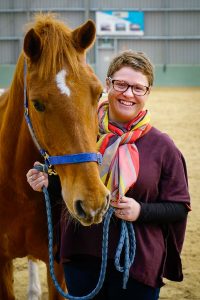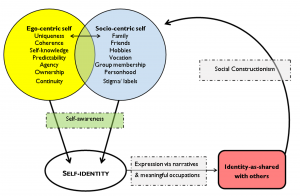Congratulations Dr Emily Thomas PhD!!
A huge congratulations from RTRU to Dr Emily Thomas who was, just this month, awarded her PhD! Emily’s thesis is entitled “Development of a measure of sense of self following traumatic brain injury” and can be downloaded from the OUR Archive website (click here for a direct link).
In addition to a number of conference presentations, Emily’s thesis has already resulted in one great publication (Thomas et al. 2014) and a book chapter (Thomas et al., 2015). Another outcome from Emily’s thesis has been the finalisation of a new clinical measure: the Brain Injury Sense of Self Scale, which is a interval-level scale that can detect problems with self-identity after brain injury. We are just in the process of setting up a new website to make this measure freely available.
Emily currently works as a rehabilitation consultants for the Solent NHS Trust in Southampton, UK.
References:
1. Thomas EJ, Levack WMM, Taylor WJ. Self-reflective meaning making in troubled times: Change in self-identity after traumatic brain injury. Qualitative Health Research 2014;24(8):1033-47.
2. Thomas EJ, Levack WMM, Taylor WJ. Rehabilitation and recovery of self-identity. In: McPherson KM, Gibson BE, Leplege A, eds. Rethinking Rehabilitation: Theory & Practice. Boca Raton: CRC Press 2015.
How to write a discussion chapter
We created a new YouTube channel just for RTRU! Here’s my first ever video for our new channel, which is on the topic of how to write a discussion chapter or section in a Masters or PhD thesis or for a publication in an academic journal.
Riding for wellbeing
 RTRU PhD candidate, Rachelle Martin, attended the New Zealand Riding for the Disabled (NZRDA) national training days (27-28 May 2017) to provide preliminary feedback for her research evaluating the effectiveness of therapeutic horse riding to NZRDA board members, riding coaches and RDA group managers. The programme of study has included three phases of research: two qualitative studies exploring the context and potential mechanisms of effect by which therapeutic horse riding impacts on the health and wellbeing of children with disabilities, and a single-case experimental design study measuring to what extent, and in whom, these effects can be demonstrated. Rachelle is in the final stages of data collection and aims to submit her thesis in January 2018.
RTRU PhD candidate, Rachelle Martin, attended the New Zealand Riding for the Disabled (NZRDA) national training days (27-28 May 2017) to provide preliminary feedback for her research evaluating the effectiveness of therapeutic horse riding to NZRDA board members, riding coaches and RDA group managers. The programme of study has included three phases of research: two qualitative studies exploring the context and potential mechanisms of effect by which therapeutic horse riding impacts on the health and wellbeing of children with disabilities, and a single-case experimental design study measuring to what extent, and in whom, these effects can be demonstrated. Rachelle is in the final stages of data collection and aims to submit her thesis in January 2018.


